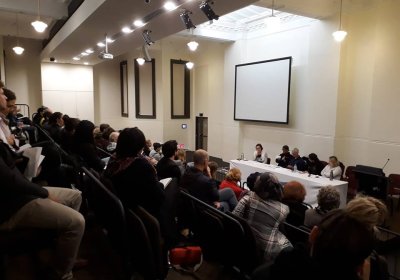Dozens of creative and disruptive actions were held across Australia under the banner of “drawing a red line” on new coal. Organised by Front Line Action on Coal (FLAC) and local Stop Adani groups, people from Auckland to Melbourne and many regional communities protested outside politicians’ offices, dropped banners over freeways and blockaded coal train lines.
Polls show more than 55% of Australians oppose the Adani coalmine, with about 70% opposing government financial support for it.











